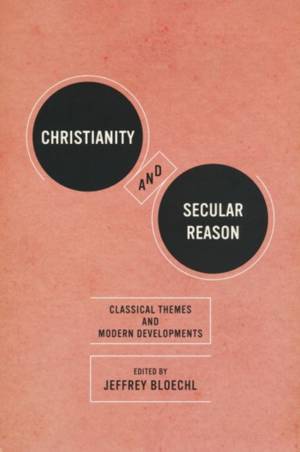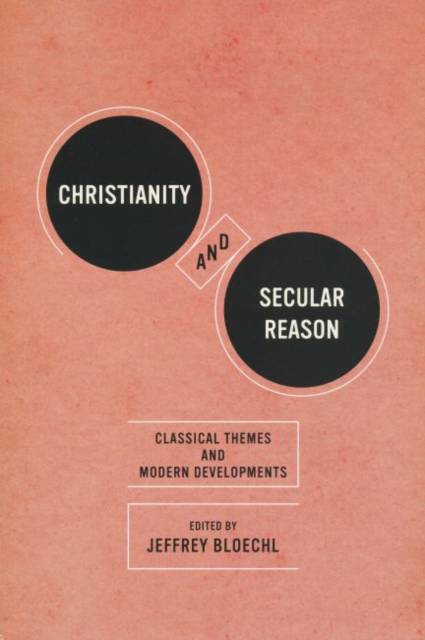
- Retrait gratuit dans votre magasin Club
- 7.000.000 titres dans notre catalogue
- Payer en toute sécurité
- Toujours un magasin près de chez vous
- Retrait gratuit dans votre magasin Club
- 7.000.000 titres dans notre catalogue
- Payer en toute sécurité
- Toujours un magasin près de chez vous
Christianity and Secular Reason
Classical Themes & Modern Developments
Description
What is secularity? Might it yield or define a distinctive form of reasoning? If so, would that form of reasoning belong essentially to our modern age, or would it instead have a considerably older lineage? And what might be the relation of that form of reasoning, whatever its lineage, to the Christian thinking that is often said to oppose it? In the present volume, these and related questions are addressed by a distinguished group of scholars working primarily within the Roman Catholic theological tradition and from the perspectives of Continental philosophy. As a whole, the volume constitutes a conversation among thinkers who agree in their concerns but not necessarily their conclusions. Taken individually, each essay concentrates on a range of historical developments with close attention to their intellectual and sometimes pedagogical implications. Secular reason, they argue, is neither the antipode of Christian thought nor a stable and well-resolved component of it. Christian thinking may engage with secular reason as the site of profound difficulties, but on occasion will also learn from it as a source of new insight.
Christianity and Secular Reason contributes to the contemporary discussion of secularity prompted especially by Charles Taylor's book A Secular Age. Unlike Taylor's work, however, this collection concentrates specifically on secular reason and explicitly on its relation to Christianity. In this sense, it is closer to Michael J. Buckley's At the Origins of Modern Atheism or, to a lesser degree, Louis Dupré's Passage to Modernity, which concern themselves with broad cultural developments.
Spécifications
Parties prenantes
- Editeur:
Contenu
- Nombre de pages :
- 296
- Langue:
- Anglais
- Collection :
Caractéristiques
- EAN:
- 9780268022280
- Date de parution :
- 15-05-12
- Format:
- Livre broché
- Format numérique:
- Trade paperback (VS)
- Dimensions :
- 152 mm x 226 mm
- Poids :
- 453 g






